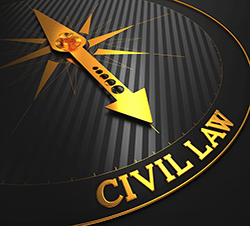Georgia Civil Court Records Search
Georgia's judicial system plays a crucial role in resolving disputes, including civil cases, through a structured legal framework. Civil court records in Georgia are documents produced from these proceedings, and they serve as public records unless specifically sealed by the court. This article will explore the various courts that handle civil cases in Georgia, the types of cases they adjudicate, the role of the Georgia Court of Appeals, and how individuals can obtain copies of civil court records.
Types of Civil Courts in Georgia
Georgia's court system is multi-tiered, with different courts handling specific types of civil matters. Here's an overview of the major courts that deal with civil cases:
1). Magistrate Civil Court: This division is also known as the “People’s Court,” the Magistrate Court handles civil cases involving smaller claims where people usually represent themselves.. These include various cases including small claims, where the amount in controversy does not exceed $15,000. These could involve unpaid debts, disputes over property, or breach of contract claims. Magistrate Courts offer a more streamlined and accessible process, with litigants often representing themselves. These courts do not require as much legal formality, making them ideal for cases where the legal stakes are lower.
2). State Civil Courts: State Courts handle a broader range of civil cases. These include cases involving personal injury, such as car accidents, premises liability, and defamation. This division also handles larger claims regarding breaches of contract, and cases where individuals claim harm from defective products. State Courts can also handle appeals from the Magistrate Court, providing another layer of review in civil disputes.
3). Superior Civil Court: This division has general jurisdiction over civil matters, meaning they can hear nearly any type of civil case. These courts address more complex and high-stakes civil disputes, including issues such as child custody, alimony, and division of marital assets. This division also handles issues like boundary disputes or title claims, as well as various equity claims. Superior Courts often serve as trial courts for significant civil matters and have the authority to hear appeals from State Courts and other lower courts.
4). Probate Civil Court: Although commonly associated with wills and estates, Probate Courts also handle civil matters such as will contests, disputes over estate administration, and trust issues. The court also handles cases relating to the appointment of guardians for minors or incapacitated adults.
The Role of the Georgia Civil Court of Appeals
After a civil case has been decided in Superior Court, parties can appeal the decision to this court if they believe there were legal errors that affected the outcome. The Court of Appeals does not retry the case or hear new evidence. Instead, it reviews the legal arguments presented to ensure the law was applied correctly. The Appellate division typically handles a wide range of civil matters, including contract disputes between people and businesses, property disputes, and family law appeals. If a party is unsatisfied with the Appellate decision, they can request a review from the Supreme Court of Georgia, though this is not guaranteed. This division typically selects only significant cases involving constitutional questions or public interest.
Obtaining Copies of Georgia Civil Court Records
Civil court records in Georgia are generally public, meaning most individuals have the right to access them. There are several ways to obtain these records, depending on the court and case type. Many Georgia courts have digitized their records, making them available online. The Georgia Administrative Office of the Courts offers an online platform known as the GA Judicial Gateway where individuals can search for civil records by name or case number. Another option is to use a third party court records website. There are a multitude of these resources that allow people to research and view GA civil court cases online for a fee. However, many of these resources are for reference only and do not offer certified copies of civil case records.


